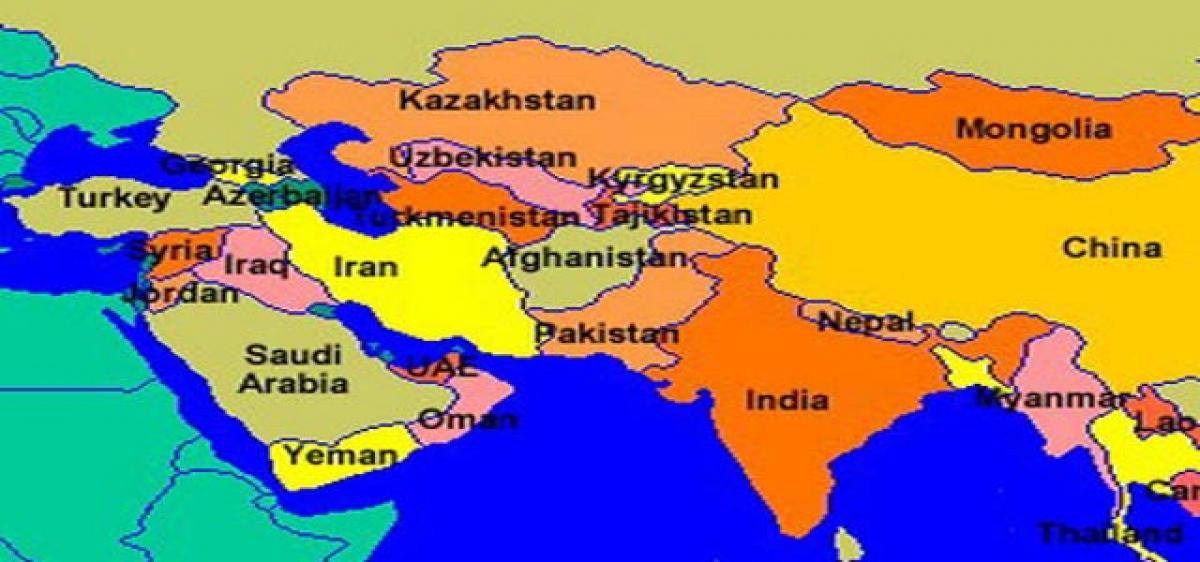Live
- Three persons admitted to hospital for diarrhea treatment
- First Star Outside Milky Way Captured: WOH G64 is 2,000 Times Larger Than the Sun
- Sikkim govt to constitute state Niti Ayog: CM Tamang
- CBI books Rajasthan narcotics inspector for Rs 3 lakh bribe
- Rajasthan bypolls: A tough contest between BJP and Congress
- Albania joins SEPA, paving way for EU integration
- Japanese government approves 250-billion USD economic package to ease price pain
- Six pharma companies to set up their units in Telangana
- The Unstable Events of a 17-Wicket Day in Perth: India vs Australia
- Dutch FM's Israel trip cancelled after Netanyahu's arrest warrant
Just In

Adviser to Prime Minister of Pakistan on Foreign Affairs Sartaj Aziz has confirmed that Pakistan will be attending the upcoming Heart of Asia conference scheduled to be held in India.
Adviser to Prime Minister of Pakistan on Foreign Affairs Sartaj Aziz has confirmed that Pakistan will be attending the upcoming Heart of Asia conference scheduled to be held in India. Foreign ministers from 14-member countries, including Russia, China and Turkey, are expected to attend the day-long conference meant to discuss the current Afghan situation and possible initiatives the immediate and extended neighbours of Afghanistan could undertake to restore long-term peace and stability in the war-torn country.
The Heart of Asia member-nations are: Republic of Azerbaijan, People’s Republic of China, Republic of India, Islamic Republic of Iran, Republic of Kazakhstan, Kyrgyz Republic, Islamic Republic of Pakistan, Russian Federation, Kingdom of Saudi Arabia, Republic of Tajikistan, Republic of Turkey, Republic of Turkmenistan and United Arab Emirates. Senior officials from 17 supporting countries, including the US, will also participate in the meeting to be jointly presided over by Afghan President Ashraf Ghani and Indian Prime Minister Narendra Modi.
The Heart of Asia annual conference is held within the framework of the so-called Istanbul Process, which was launched in 2011 as a result of international conference on the Afghanistan’s issue. The Heart of Asia conference is aimed at bringing together the regional states to discuss the regional issues, particularly encouraging security, political, and economic cooperation among Afghanistan and its neighbors.
The Heart of Asia-Istanbul Process was established in 2011 at the initiative of Afghanistan and Turkey. Its main objective is to foster efforts for regional cooperation and connectivity with a view to promoting long-term peace and stability as well as progress and development in Afghanistan, and the region. Members seek to help Afghanistan face common threats, including counterterrorism, counternarcotics, poverty, and extremism. The United States and over 20 other nations and organizations serve as “supporting nations” to the process.
The Istanbul Process deliberates on: A) Political consultation involving Afghanistan and its near and extended neighbours; B) A sustained incremental approach to implementation of the Confidence Building Measures (CBMs) identified in the Istanbul Process document; and C) Seeking to contribute and bring greater coherence to the work of various regional processes and organisations, particularly as they relate to Afghanistan. The Istanbul Process is not intended to substitute the existing efforts of regional organisations, but to cooperate with them, and complement their work where necessary, particularly where they relate to Afghanistan.

© 2024 Hyderabad Media House Limited/The Hans India. All rights reserved. Powered by hocalwire.com







